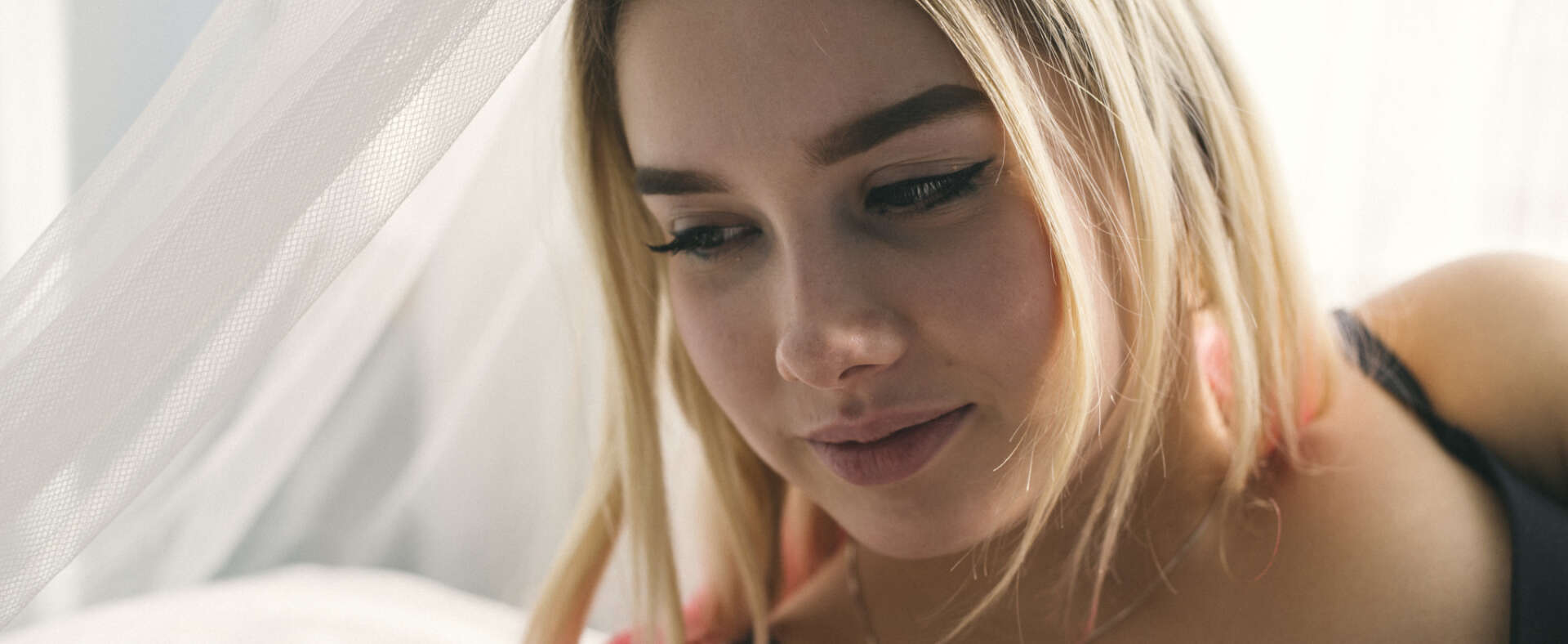WRITTEN BY: Annika Pham
After its world premiere in Toronto, Vilhunen’s second feature Stupid Young Heart opens today in Finland via Nordisk Film. We spoke to the director.

After its world premiere in Toronto, Vilhunen’s second feature Stupid Young Heart opens today in Finland via Nordisk Film. We spoke to the director.
Stupid Young Heart focuses on teenagers Lenni and Kiira who suddenly have to deal with grown up problems of pregnancy, while extreme right ideas begin to encroach on their suburban neighbourhood.
In the title roles are Jere Ristseppä, Rosa Honkonen, Abshir Sheikh Nur, Ville Haapasalo and Pihla Viitala. The film was produced by Tuffi Films, with support from Nordisk Film & TV Fond.
After Little Wing, Stupid Young Heart is another coming of age film, but with two main stories that intertwine. What attracted you to the main themes, and how did you collaborate with screenwriter Kirsikka Saari?
Selma Vilhunen: This story was Kirsikka’s screenplay and very much her baby. She knew she wanted to tackle teenage pregnancy because her best friend became pregnant at 16 and Kirsikka is the baby’s godmother, and the ‘baby’ is now a lawyer! That was a happy story, and Kirsikka wanted to share this experience, say that for teenagers, having a baby is a true challenge but it can also be a happy moment.
There is also the parallel story of the rise of populism. She wanted to dive into this topic, from an inner perspective. It was difficult to find the angle until she found the key.
Kirsikka’s hairdresser had told her that she had helped a friend to give birth. The husband in his 40s felt he wasn’t ready to be a father. In the middle of the night, they met a 15-year old boy, totally shaved. He was waiting for his girlfriend to give birth. He was small, but very confident, the man with a plan! That’s where Kirsikka got the idea for Stupid Young Heart.
When I read the first draft in 2013, the story was already there and I fell in love with it.
To me, it has similarities with Little Wing, and it touched me on many levels, as a parent as well.
We see Lenni gradually falling into the influence of his older friend Janni who has white supremacist ideas but represents a father figure. How did you deal with the ethical aspects of showing far right populist ideology?
SV: We spent quite some time figuring out what Lenni stands for and how to portray him. In a way, Lenni is the antagonist, but we didn’t want to stereotype him, we wanted to make him human, contradictory. He eventually opens his eyes, and he’s a good partner to Kiira.
I think quite many young people don’t have enough adult guidance. At the same time, resources are being cut to help young people dealing with mental health issues. At schools, there are not enough counsellors, and this has an impact on vulnerable youngsters, the political direction they might take.
How did you work on the visual style?
SV: We had creative input from our co-producers from the Netherlands [Windmill Film] and Sweden [Hob ab). We hired quite early the Swedish production designer Eva Torsdall and DoP Lisabi Fridell. Their creative input for the look of the film was huge. Costume designer Karoliina Koiso-Kanttila and make-up artist Kaisu Hölttä with whom I had worked before also did a great job. All four women and I, we created this colourful flashy pink that clash with the greyish suburb where the kids live.
How did you find Jere Ristseppä who plays Lenni and how do you work with actors in general?
SV: It was almost a miracle. Kirsikka’s stepdaughter who’s Jere’s friend, read on social media the casting call that we made and said: “I know someone exactly the guy who can play Lenni”. He came to the casting and we knew he was the one.
Generally speaking, I make sure all actors feel comfortable on the set, and rehearse as much as possible. For the intimate scenes, I used some help from a wonderful Finnish acting coach, based in L.A., Marjo-Riikka Mäkelä. She’s specialised in Michael Chekhov acting technique. She worked one day with Jere and Rosa, to help them connect. Her technique is about finding physical gestures that help the body create emotions that you’re looking for. It’s small details that encourage people to be brave and opening up. It’s very effective!
What do you wish youngsters to say or feel after watching your film?
SV: I don’t have answers on how people should live their life, but I’d like the film to create a sort of mental space where people can see themselves and people next to them in a different light. I hope to create more space in people’s heart, give them tools to feel empathy towards people who are different.
What's next for you?
SV: I’ve been working on a project for a while. It’s been on hold but I’d like to go back to it. It’s about a Thai woman who marries a Finnish man. Set in rural Finland, it’s about her difficulty to integrate, how she’s faced with prejudice. I’d like as well to go back to writing, so I need to make some space in my mind to find the inspiration. We’re living very strange times. I want to reflect on this.